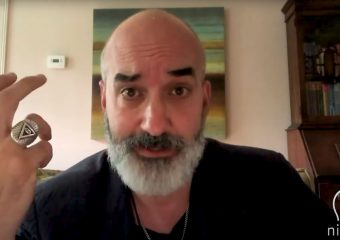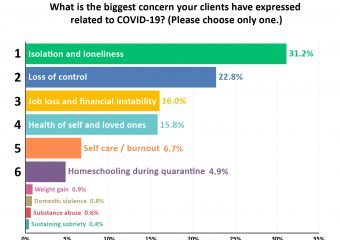For some clients, not an hour goes by without an intrusive thought from their “inner critic” . . . . . . and the shame, blame, and fear that it stirs up can be paralyzing. So how can we help clients who struggle to keep these unwelcome thoughts in check? Well, Dennis Tirch, PhD, has a […]
The Neuroscience of Mindfulness and Fear
When a client is afraid, there’s a practice that can help them stay grounded in the present . . . . . . instead of getting hijacked by panic and “worst-case scenario” thinking. And that practice is mindfulness. In the video below, Tara Brach, PhD will get into how mindfulness disrupts the neurobiology of fear, […]
How COVID-19 Is Affecting Practitioners
A couple weeks ago, we asked how COVID-19 was affecting your practice . . . . . . and I thought you might like to know what we found out. But first, thank you to the hundreds of practitioners from across the globe who shared their experiences. This helps us better understand how we can […]
A Two-Step Approach for Helping Clients Bring Awareness to an Emotional Trigger
When a client is triggered, it can often set off a cycle of reactivity that makes them feel anxious, angry, or out of control. But how do we help a client who might not even realize they’re being triggered in the first place? In the video below, Zindel Segal, PhD, shares a two-step approach for […]
How to Integrate the Brain and Prevent Dissociation After Trauma
Trauma affects nearly every area of a person’s brain. Not only that, but trauma disrupts the connections in the brain. And when the brain isn’t integrated, it impacts the nervous system and the entire body. So how can we work with clients to repair integration after trauma? In the video clip below, Pat Ogden, PhD […]




